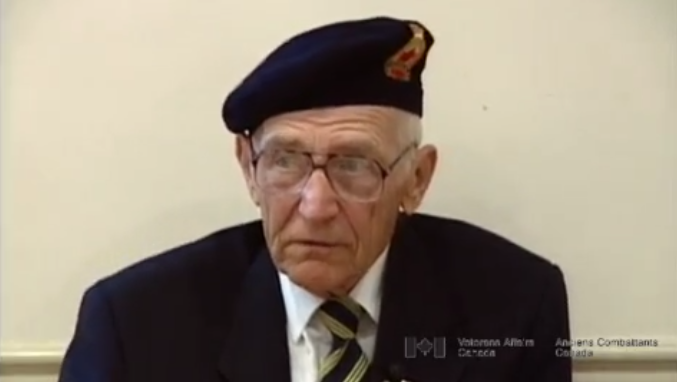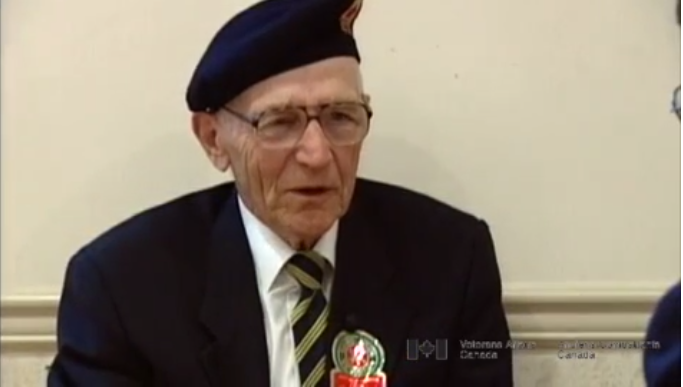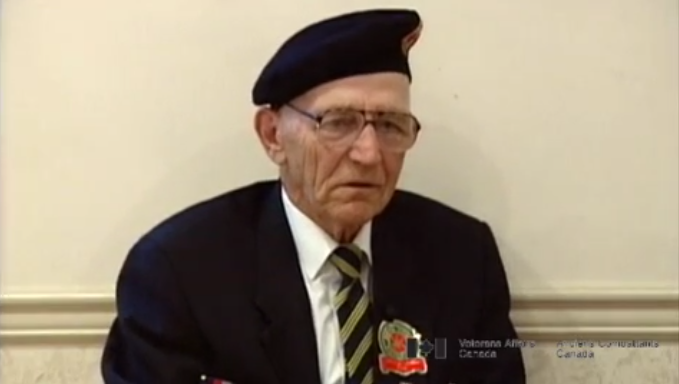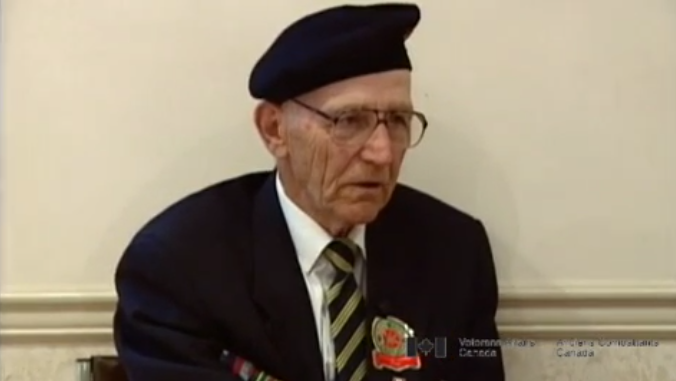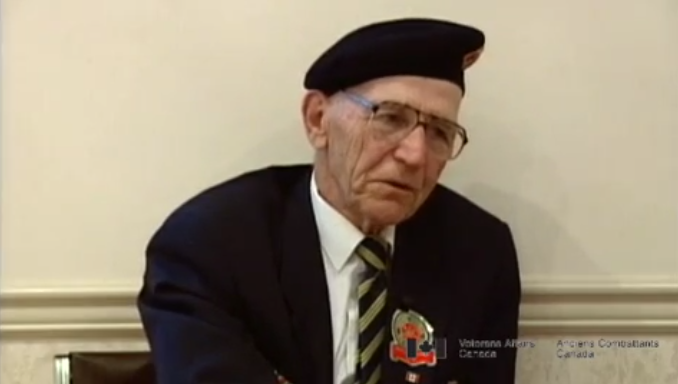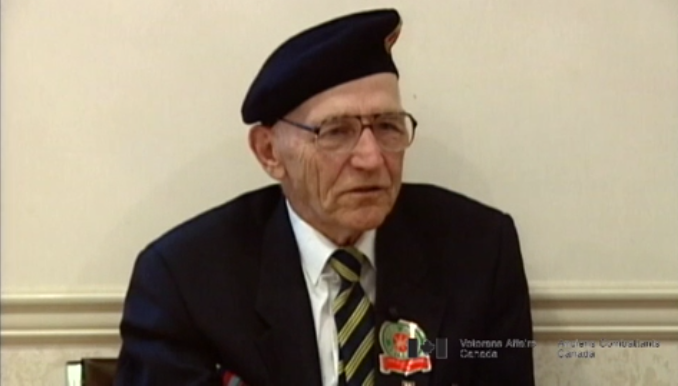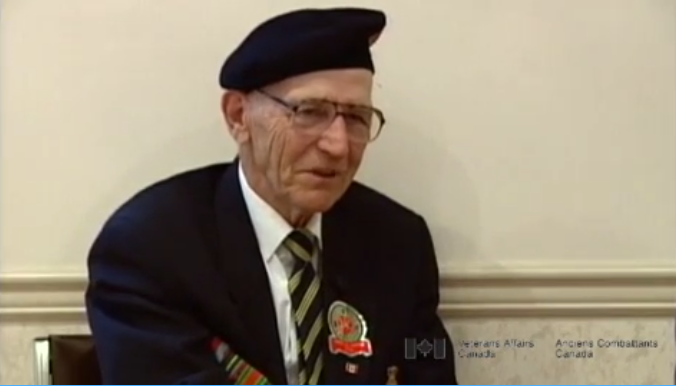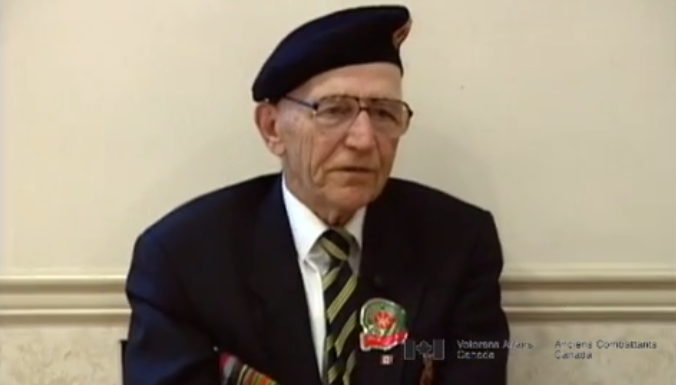There Were no Toilets and we all had Diarrhea
Heroes Remember
There Were no Toilets and we all had Diarrhea
Transcript
Description
Mr. Peters describes the environment aboard the ship which took the labour gangs to Japan.
Abraham Peters
Abe Peters, one of six children, was born in Lowe Farm, Manitoba, on November 12, 1919. His father was a farmer. Mr. Peters worked on the family farm, and was entrusted with the care of the horses. He left school after completing Grade eight to become a farm labourer. His parents were very upset to learn that he had enlisted in the Royal Winnipeg Rifles in June, 1940. Mr. Peters took basic training at Shiloh, Manitoba and Debert, Nova Scotia. He was ill in hospital when the Rifles shipped overseas to Europe, and once healthy, was sent to reinforce the Winnipeg Grenadiers, with whom he was sent to Hong Kong. As with other survivors of the Hong Kong theatre, Mr. Peters experienced poor training, inferior weaponry, capitulation and a life of misery in the Japanese POW and labour camps. He agrees with many of his comrades that it was a hopeless deployment.
Meta Data
- Medium:
- Video
- Owner:
- Veterans Affairs Canada
- Duration:
- 2:51
- Person Interviewed:
- Abraham Peters
- War, Conflict or Mission:
- Second World War
- Location/Theatre:
- Japan
- Battle/Campaign:
- Hong Kong
- Branch:
- Army
- Units/Ship:
- Royal Winnipeg Rifles
- Rank:
- Corporal
Related Videos
- Date modified:



